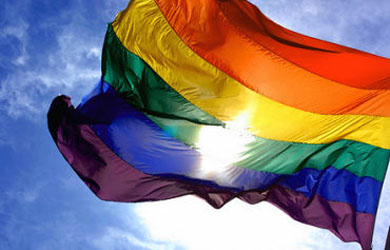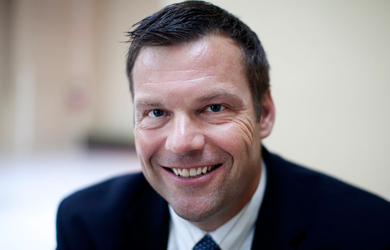It’s been a rough few days for voter-ID proponents. On Thursday, the nonpartisan Government Accountability Office came out with a report showing that restrictive photo-ID measures had depressed turnout in Tennessee and Kansas, especially among young people and African Americans. The same day, the Supreme Court blocked the implementation of a photo-ID law in Wisconsin that voting rights advocates said there was not enough time to implement before the election and a federal judge in Texas struck down that state’s restrictive law, citing its impact on minority voters and calling it an “unconstitutional poll tax.”
Then, the next day, renowned conservative 7th Circuit judge Richard Posner requested a full-court rehearing of the challenge to Wisconsin’s law, in the process offering a blistering takedown of the voter-ID crowd’s arguments. “There is only one motivation for imposing burdens on voting that are ostensibly designed to discourage voter-impersonation fraud, and that is to discourage voting by persons likely to vote against the party responsible for imposing the burdens,” he wrote. He added a special dig at the advocacy group True the Vote, calling some of their supposed evidence of voter-impersonation fraud “goofy” and “paranoid.”
Then, just today, University of Delaware researchers came out with a study showing that support for voter ID laws among whites jumps when they are shown a picture of a black person voting.
All of which made a Heritage Foundation panel today called “Keeping Elections Honest” seem like it was taking place in an alternate reality, one in which the extremely rare voter-impersonation fraud is in fact rampant and in which laws making it more difficult to vote do not have negative effects.
The Heritage discussion featured some of the nation’s top proponents of voter suppression measures, including Heritage’s Hans von Spakovsky, Kansas Secretary of State Kris Kobach (the brains behind anti-immigrant and voter suppression measures around the country), Kobach’s Colorado counterpart Scott Gessler and True the Vote’s Catherine Engelbrecht.
Kobach spent part of his presentation attempting to refute the GAO study, but the court rulings went mostly unmentioned.
This alternate reality was perhaps most stark when, during a question-and-answer session, a reporter asked Kobach about the two-tiered voting system he’s instituted in Kansas for the coming election. Kobach and Arizona Secretary of State Ken Bennett are in the process of suing the Election Assistance Commission to include a more restrictive “proof of citizenship” requirement on the federal voter registration forms it uses in those two states. In the meantime, Kansas and Arizona are allowing people who register using the federal form without providing additional documentation to vote…but only in federal elections. (Votes those people cast in state-level elections won’t be counted.)
About 1,500 Arizonans and 200 Kansans were put in this special federal-only voting tier in the primary.
Kobach, far from seeming concerned about this state of affairs, proudly reported that of the 200 Kansans to whom he gave special limited voting rights, only one bothered to show up at the polls.
In the primary on August 5, we had fewer than 200 total voters in the state who had registered using the federal form and had not provided photo ID. Using that number, we then created a sort of federal-elections-only voter roll, if you will, so a roll in addition to the main voter roll. And it didn’t include all of the 105 counties, it included a minority of the counties. And then those people, when they showed up, they were to be given a provisional ballot and told that they would be — actually it would occur on the back end, even if the poll worker didn’t know that that’s why they were being given a provisional ballot, the county canvas would count only the federal elections on the ballot.
…
So anyway, to answer your question, we are going to be doing a count, a final count – our registration actually closes today, this is the final day to register in Kansas – as soon as it closes, we’ll have a final count. My guess is it probably will be in the range of maybe 300-400, we’ll know soon what that number is, for the whole state. And by the way, of those fewer than 200 people— if memory serves, it was like 186 or something like that — only one actually showed up to vote out of that entire number. So, we’ll see what the number is. So the numbers are actually pretty small and pretty manageable right now and we’re hopeful that we’ll get a decision that will be a favorable one and then we won’t have to maintain a separate, federal-elections-only list.
At no point in the discussion did anyone mention the thousands of Kansans who currently have no right to vote in any kind of election because they haven’t been able to produce one of the few kinds of citizenship documentation required by the new state voter registration form.





